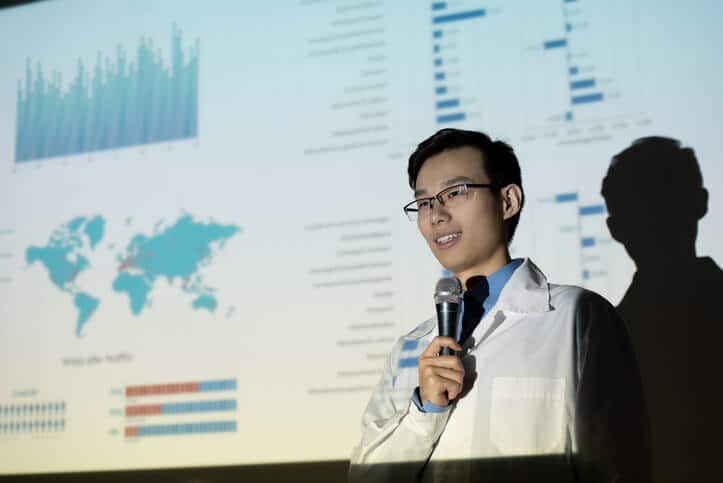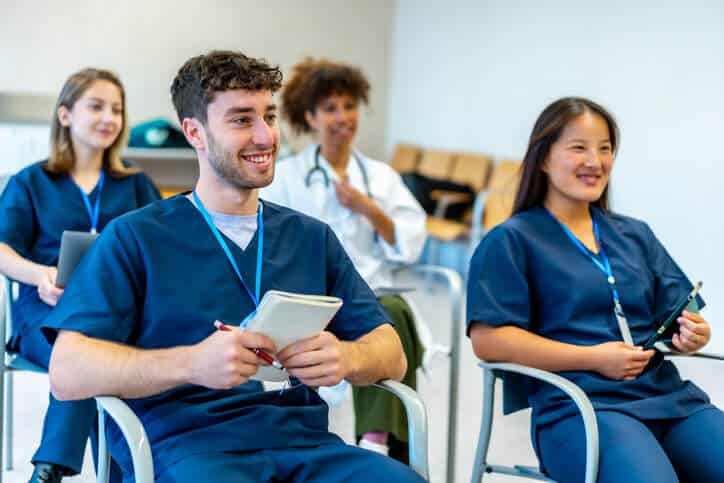With over two decades of experience spanning academia, pharmaceutical regulation, and clinical trials, Dr. Tigran Uzunyan has built a career that bridges science and industry. As a respected clinical pharmacologist and research scientist, Dr. Uzunyan brings practical insights to his teaching at AAPS, mentoring the next generation of Clinical Research Coordinators.
In this spotlight, Dr. Uzunyan shares his perspective on how to become a clinical research coordinator, what qualifications matter, and why foundational training is the key to success in today’s competitive health sciences sector.
Understanding the Role of a Clinical Research Coordinator
The Clinical Research Coordinator (CRC) is an essential member of any clinical trial team. From managing trial documents to ensuring protocols are followed at the site level, CRCs are involved in every operational aspect of a study.
Those researching how to become a clinical research coordinator often ask what’s required for the role. Typically, a bachelor’s degree in a science-related field, such as pharmacy, biomedical science, nursing, or chemistry, is the first step. This academic background supports the critical thinking and technical understanding required to manage clinical research.
In addition to education, there are specific clinical research coordinator qualifications that are developed through hands-on experience and professional training. These include regulatory compliance knowledge, clinical data handling, and patient coordination skills.

A clinical research coordinator must be familiar with every phase of clinical trials.
Core Competencies for Success
A strong understanding of regulatory frameworks is one of the most important clinical research coordinator requirements. Coordinators must be familiar with Health Canada, FDA, and ICH-GCP guidelines to ensure trials are ethically and scientifically sound.
This is where formal clinical research training becomes essential. At AAPS, students build core competencies in areas like monitoring, documentation, safety reporting, and project oversight.
As part of the learning journey, students are introduced to every phase of clinical trials, from protocol development to patient enrollment and study closeout. They also gain exposure to industry tools like case report forms, EDC systems, and SOP documentation.
One additional skill that experienced researchers emphasize is the importance of developing a “Documentation Mindset.” In clinical research, if it’s not documented, it didn’t happen. CRCs must become proficient in maintaining regulatory binders, managing version-controlled documents, and recording every protocol-related action. This mindset ensures audit-readiness and data integrity throughout the trial.

Formal clinical research training helps students build core competencies in essential areas.
Building Your Path: Education and Specialized Training
To meet industry expectations, those pursuing a clinical research career should be prepared to combine academic qualifications with applied skills. While a degree provides scientific literacy, only focused training can prepare students to run, monitor, and administer clinical trials.
AAPS’s Clinical Research Diploma helps students meet the full range of clinical research coordinator education requirements, providing instruction in:
- Trial design and protocol development
- Drug safety and pharmacovigilance
- Ethics and informed consent processes
- Monitoring visits and reporting practices
These components are carefully structured to reflect current industry needs and equip graduates with both the confidence and competence to succeed. You can also find Dr Uzunyan top interview tips for clinical research roles in this guide.

AAPS’s Clinical Research Diploma equips students for success.
Professional Insight From Dr. Tigran Uzunyan
In a nutshell, Dr. Uzunyan outlines three essential steps for anyone pursuing a role in clinical research:
- Start with a bachelor’s degree in a health or science-related field such as pharmacy, nursing, or chemistry.
- Build foundational knowledge in clinical research regulations and drug development guidelines.
- Pursue specialized training through programs like the one offered at AAPS to gain practical skills in coordinating and monitoring trials.
▶️ Watch Dr. Tigran’s video for a concise overview of these career-building steps. You can also find a detailed explanation of the steps to becoming a clinical research coordinator here.
His long-standing experience across jurisdictions, combined with medical writing and regulatory expertise, gives students rare access to a blend of scientific precision and real-world insight.
Another piece of advice Dr. Uzunyan gives to aspiring CRCs is to understand the broader career ladder. A Clinical Research Coordinator is often a stepping stone to other roles in clinical operations, regulatory affairs, medical writing, or pharmacovigilance. Knowing how to navigate from CRC to CRA, Project Manager, or Regulatory Associate helps students set clear career goals from the start.
Start Your Career in Clinical Trials Research
If you’re serious about building a future in clinical trials, taking the right steps early will position you for long-term success. The AAPS clinical research diploma offers a well-rounded path into one of the most in-demand roles in healthcare and pharmaceutical innovation.
With guidance from expert instructors like Dr. Uzunyan and a curriculum that mirrors industry expectations, students graduate with the practical knowledge and credentials employers are looking for.
Are you looking for a comprehensive Clinical Research Diploma program?
Contact AAPS for more information.




